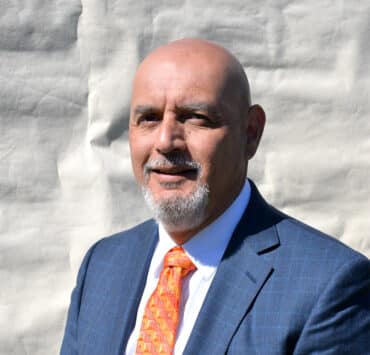Carly Rodriguez is passionate about the future of biosimilar drugs. The vice president and chief pharmacy officer at Moda Health is intimately familiar with just how much people currently spend on specialty drugs like Enbrel, Humira, and others.
“What may be surprising to many is that specialty drugs account for less than 2 percent of all prescriptions, but they make up 50 percent or more of total drug spend,” Rodriguez explains. “Biosimilars is a space that I’m excited about because they bring the first hope of consumer price relief, or at least concession, for some of the costliest drugs in the world.”
She says Moda Health, an early adopter of biosimilars, has been a vocal advocate of embracing them because of the savings they can deliver to the healthcare system. The most important indicator? It’s working.
“We’ve converted almost 98 percent of members to biosimilars,” Rodriguez explains. “It’s resulted in millions of dollars in savings to our customers in just a few short months. Think of what that can mean long term as additional biosimilars come to market.”
More biosimilars are indeed on the horizon, including those for Stelara, Xolair, and other commonly used specialty drugs that account for significant pharmacy spend.
“Being on the board of Kerr has changed the way I think about healthcare.”
Carly Rodriguez
It’s easy to understand why Rodriguez cares so much. While the US presidential election looms, one can easily look up old campaign ads from the last fifty years and find candidates addressing the high cost of prescription drugs. It is a problem that has not been solved and oftentimes seems to be getting worse for the most vulnerable Americans. Gene therapies, which provide clinical promise for many rare health conditions, are a great example.
The Future of Gene Therapies
Rodriguez has been a contributing member to health technology and innovation assessment thought leader groups for the last decade. These groups take on difficult subjects, like examining alternate funding models for gene therapies that can cost millions of dollars for a single dose.
“The funding model is such a key issue when you talk about gene therapies,” Rodriguez points out. “Some of these have incredibly promising clinical evidence with the potential to change people’s lives, but if it ultimately bankrupts an individual or employer, what’s the true value?”
One of the challenges of implementing alternative payment models is the sheer number of stakeholders and levers involved, with complicating factors at every step. Rodriguez says there has been success in conversations with manufacturers around novel concepts like warranties for therapies that don’t do what they’re intended to. There is much work to be done around payment models, but in the meantime, Rodriguez and her team have implemented many initiatives to manage the sky-high cost of these therapies.
Giving Back to Pharmacy, Oregon, and Beyond
Rodriguez has kept incredibly active outside Moda as well. The chief pharmacy officer is a longtime member, part of the board of directors, and now the president-elect of the Academy of Managed Care Pharmacy (AMCP). The organization has been one of the “most enjoyable parts” of Rodriguez’s career, and if it’s not already clear, this is a person deeply passionate about what she does.
“The people that I met through AMCP when I was twenty-two or twenty-three, in my first year of pharmacy school, are still people I text weekly, people I will ask for professional or life advice,” Rodriguez explains.
“It’s created this incredible community that can bounce ideas off each other. It’s a safe space to think big. I’m such a big advocate for AMCP because I firmly believe I wouldn’t be sitting in the chair I am today if it weren’t for the opportunities they have provided me. This is an organization where you can create lasting relationships and opportunities,” she says.
Through Moda’s community connections, Rodriguez has also joined the board of directors for Albertina Kerr, an Oregon-based nonprofit that empowers people with intellectual and developmental disabilities and mental health challenges to lead self-determined lives in their communities.
“Being on the board of Kerr has changed the way I think about healthcare,” Rodriguez says. “It’s changed how I think about social determinants of health and health equity. It’s always been a consideration in my work, but the Kerr organization has challenged me to think about how we best support and provide access to some of the most vulnerable members of our society.”
She says other Moda executives encouraged her to get involved with Kerr. It’s just another sign of the responsibility Moda takes for being active in its community—as active as it has allowed Rodriguez to be in the development of progressive and industry-challenging pharmacy programs.
Given the number of successes the chief pharmacy officer has managed, she says that she’s checked off a good many items on her professional bucket list. Now she’s focused on providing an amazing example for her three children: a strong woman who has managed both a successful career and family.
And while she’s checked a lot off her list, she knows there’s a long way to go. Rodriguez and Moda continue to set trends for the future of biosimilars in healthcare and beyond.
For nearly four years, Navitus has provided pharmacy benefits for Moda Health/ArrayRx and over 800,000 of their members. Throughout this time, we have partnered with Carly and the broader the organization on innovative clinical programs, custom formulary and benefit designs, and various strategic growth opportunities. Our Navitus team sincerely appreciates Carly’s leadership and support on each of our strategic and collaborative efforts. We look forward to continued, shared success in the Moda-Navitus relationship.


